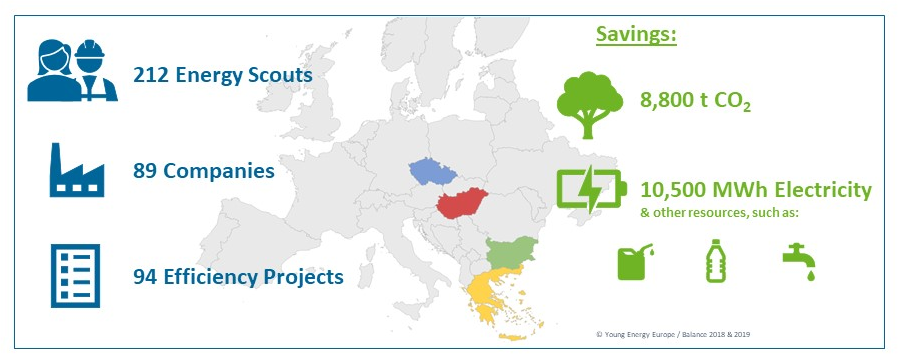Organised by the EUKI Academy and CEEweb, the Hungarian EUKI Community Conference will present a unique chance for all Hungarian EUKI projects to network and learn from each other. Next to sharing experiences and good practices, this event contributes to a more continuous flow of information between the EUKI projects. Together we want to develop/build a steady approach to European and national climate policy issues and challenges. This shall also help to increase the effectiveness of the individual EUKI projects.
Participants will have the opportunity to discuss current and future challenges to the Hungarian green transition with Hungarian and German representatives. The EUKI project’s lessons learned, success factors and common challenges will be compiled and exchanged. A Climate Action Simulation and a “walk-shop” around Budapest round up the programme. The organisers CEEweb and EUKI Academy are looking forward to your participation.
See the preliminary programme below (still subject to alterations):
Day 1
9:30 – 10:00 Registration & Welcome Coffee
10:00 – 10:15 Welcome by
- Ulrike Leis, Deputy Director of the European Climate Initiative (EUKI)
- Julia Gross, German Ambassador to Hungary
10:15 – 11:45 Panel discussion: Current chances and opportunities for the Hungarian green transition
Moderator: Peter Olajos, President of CEEweb
This event will be streamed via the EUKI Academy.
- Noémi Dálnoky, Hungarian Ministry of Regional Development and Utilization of EU Funds
- Matthias Casper, Counsellor of European Climate Policy, German Federal Ministry for Economic Affairs and Climate Action (BMWK)
- Barbara Kovács, Head of the Department for Climate Policy, Hungarian Ministry of Technology and Innovation (TIM)
- László Szabó, Director, REKK Foundation for Regional Policy Co-operation in Energy and Infrastructure (REKK Foundation)
11:45 – 12:15 Coffee Break
12:15 – 13:45 “ConversTations”, Moderator: Csaba Mezei, General Secretary of CEEweb
Introduction of all Hungarian EUKI projects in a gamified manner
13:45 – 15:00Lunch
15:00 – 17:30 Climate Action Simulation with En-ROADS Climate Policy Simulator
Moderated group exercise of interactive climate policy simulation. Commitment is needed by participants to engage for the whole duration of the session.
- Viktor Jósa, CliMates
18:00 – 20:30 Gala Dinner
Day 2
9:30 – 10:00 Registration & Welcome Coffee
10:00 – 10:15 Welcome and introduction by Aleksandra Khirv, Project Lead CEEweb
10:15 – 11:45 EUKI projects exchange I, Moderator: Aleksandra Khirv, CEEweb
Each project shares lessons learned, success factors and challenges before running a quick Q&A session.
- “From advocacy to implementation. How EUKI projects helped community energy in Hungary”:
Ágnes-Szalkai Lőrincz and Bence Kovács, MTVSZ - “Breaking barriers to low-carbon investment in Budapest”: Ada Ámon, Head of Department for Climate and Environmental Affairs, Municipality of Budapest
- “Making the carbon taxing FAIR”: Anna Bajomi, Habitat for Humanity Hungary
11:45 – 12:15 Coffee Break
12:15 – 13:45 EUKI projects exchange II, Moderator: Aleksandra Khirv, CEEweb
Each project shares lessons learned, success factors and challenges before running a quick Q&A session.
- “Complexity of the biomass energy – lessons learnt”: Adam Harmat, WWF Hungary
- “How to predict CO2 emissions from transport – TEDiT tool “: Ágoston Princz, CAAG
- “Consolidating Ambitious Climate Targets with End-Use Sufficiency (CACTUS)”: Mária Bartek-Lesi, REKK
13:45 – 15:00Lunch
15:00 – 16:30 ”Walk-shop” around Budapest, Moderation: Katalin Tarr, CAAG
Guided field visit around Budapest city center with the visit of “good and bad practices” of EU funding allocation in Hungary.
18:00 – 20:30 Dinner
Download the Agenda here

